The last movie in the Kara no Kyoukai franchise is in no hurry - two full hours to complete one of the best series of recent memory and it does so with grace, thoughtfulness and poignancy that surpasses even itself. Pulling together threads which have run throughout all of the films, it sublimely finishes the narrative which saw Shiki's alter ego perish, an event which has haunted her emotionally and physically since awakening from her coma. As well as slowly revealing the minutes before the incident which put her in the hospital, the last gasp of the mage Araya Souren is revealed and with it, the truth behind the murders that started four years prior.
Set after Oblivion Recorder, a new spate of ferocious murders has caught the eye of both Shiki and Daisuke, Mikiya's cousin who investigated the murders before. Shiki wanders the back alleys of the business district, searching for the murderer and avoiding attacks by local thugs while Mikiya becomes more and more worried about her, beginning his own investigation that takes him down a path populated by drug pushers and prostitutes. The perpetrator, Lio Shirazumi, finds Shiki first but loses an arm in the resulting scuffle; retreating, he discovers Mikiya in his apartment which has become a madman's shrine to Shiki. She is captured and tortured by Lio, still struggling with murderous urges, her salvation relies on Mikiya who may befall Lio's uncontrollable cravings.
Antagonists like Lio can only exist after a rapport with the protagonists has been built, otherwise he would be just a blonde crackpot with overly active saliva glands. Instead, he becomes something far more potent: contrasting Shiki, exploiting Mikiya and melding with the story to become a symbol for the themes that have run throughout, but most of all he is viciously, sadistically terrifying. His introduction a third of the way in is magnificent unto itself, however there is a deep, pitch-black malevolence that permeates beforehand casting a deep shadow across all the characters: Shiki wanders abandoned streets frequently shrouded in darkness, Mikiya meanwhile samples some of the drugs the murder victims were apparently using, shrouding his thoughts. It's almost a relief when Lio is revealed as the oppressive expectation could have easily become stifling.
Touko resumes her role as sage mediator, advising but remaining aloof: her subtle personality shifts tied to the wearing of her glasses more prominent here. She sets the tone for the remainder of the film with long wistful shots of her now mostly organised office, defining the opening half with a finality that seeps into the remaining half. Wounds inflicted on enemies and friend alike, both figurative and literal, are too drastic, altering the landscape of the characters. Knowledge that this is the last consequential Kara no Kyoukai release, ignoring the summation epilogue that is forthcoming, lends actions in the film a permanence that hasn't been present before; it makes Shiki and Mikiya's relationship and the tribulation it undergoes all the more affecting.
The themes explored in varying degrees by the previous films are front and centre here, Shiki's male persona SHIKI is given body and voice in the form of Lio and emotion with Mikiya. The juxtaposition of Lio and Shiki is superbly done: while at first the two seem identical in both movement and motivation, as their first meeting wears on Lio gradually becomes more feral, exacerbated by the severing of his arm. His motions are primal and are infused a coarse, unhinged madness by the sublime Souichirou Hoshi who cackles and verbally frolics at every opportunity. Lio mirrors Shiki, his apartment matching hers but where Shiki's is spartan, his is chaotic and filled with his addiction to her. His raison d'etre, to murder and consume, matches SHIKI's on a basic level which makes the climax - a slavering and prolonged assault on Shiki - that much more poignant.
The male-female divide is explored further with the trickle of details from Shiki's fateful night before her coma. At first the cameo appearance by Araya links the entire storyline to his quest for power, but as wordless standoffs become conversations, SHIKI's feelings towards Mikiya, ones which transcend mere romance, become clear. The ambivalence she shows towards him has slowly ebbed as she has grown up and come to terms with SHIKI's death, here though they are turned on their head. At times she is shown as a woman: naked in the shower, debased by Lio, her modesty torn away by his teeth; and others her male side is hinted at, no more so than the phone call between her and Mikiya, she in his apartment and he in hers. This bleeds through to Mikiya as well: his interactions with Lio are fractious and violent, echoing the earlier days of his and Shiki's relationship, but the hatred Lio feels for his effect on Shiki is self-evident. Most telling is the forced and brutal "kiss" the two share whereas Mikiya and Shiki share no such physical affection, even in the closing moments of the story.
Paradox Spiral wore its fantasy elements on its sleeve, gleefully delving into abstract concepts and fantastical explanations but a more down to earth tact is taken here; Touko's explanation of the Origin more spiritually inclined and Lio's situation treated more as psychological than magical. This makes the story a lot more tactile and subsequently a lot more powerful than it could have been, but results in scenes like Shiki's bone-crunching suicide attempt and Lio's near-rape of her difficult to watch. In a switch away from from the prior blood-soaked storylines the gore is restrained here, viscera is still present but blissfully infrequent. Likewise, nods to the rest of the series are mere background noise to the main story - Azaka shows up almost apologetically to justify her domination of the previous film, whereas the bridge twisted by Fujino in Remaining Sense of Pain backs Lio's apartment.
All of the parts then are stunning when isolated, but the entirety is superlative. The narrative coalesces in such a flawless way that it is easy to overlook the other, astounding elements which have evolved with the series. The musical evolution from the past movies is quite simply staggering, the sonics have a depth and grandeur to them that was so rarely demonstrated before: the opening litany is stirring and marks a significant change from the haunting vocals of Kalafina which are saved for the closing credits. Everything from Lio's salivation to Shiki's refrigerator is perfectly realised and such atmospheric audio is joyful to experience after the whimsical and ultimately soulless plucking of Oblivion Recorder.
Equally, visuals are best in class transcending anything ufotable have done before. The special brand of darkness which is continuously plumbed has layer upon layer of detail that is almost lost on DVD. Colours shift and blend depending on mood from neutral blacks and greens of the city to golds and ambers of the setting sun to harsh blues and whites of Lio's last stand, it makes the verdant green and pink of the post-credits wrap up blinding after the bleakness that assaults from the opening moments. Weather is once again used to great effect, rain mixing with tears and snow for a thoughtful repose, the decrepit warehouse in the climax only highlighting these: silhouettes of raindrops cast over a restrained Shiki and snowflakes drifting beyond a decaying roof. Animation is uniformly impeccable, handling the slightest expression and delightfully frenetic fights with aplomb; to say the artists have outdone themselves would be doing them a disservice with quality this divine on display.
The conclusion of the Murder Speculation plotline is abjectly brilliant. It lacks for nothing and cuts no corners in delivering a story, spectacle and conclusion unrivalled by anything currently available. In a master stroke it completes both an ongoing story and a series while still proving an excellent film in its own right. There are few words able to convey the resplendence of Kara no Kyoukai: Murder Speculation (Part Two), it is a monolith of quality and artistic effort in all areas that overshadows both past and future releases, both anime and film. This is truly legendary and privileged are those who have been able to experience it.

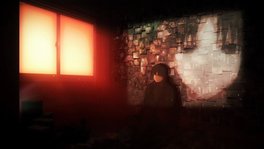


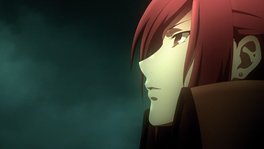
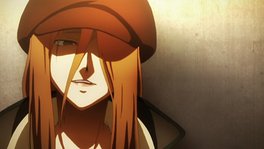

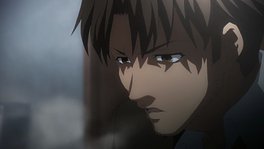

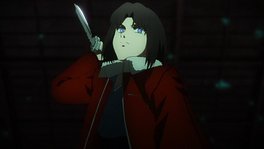
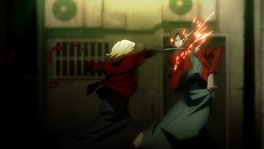

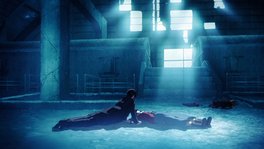

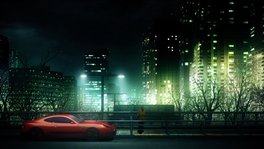
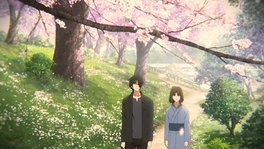
cheers